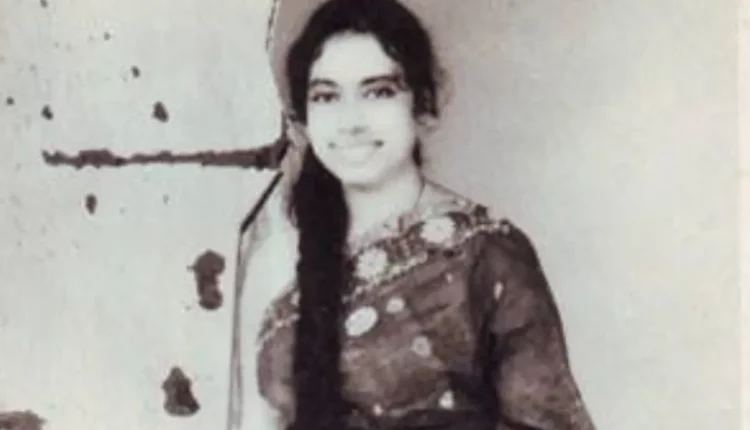Selina Parvin, a name etched in the hearts of the people of Bangladesh, represents the essence of courage, resilience, and unwavering devotion to the cause of freedom. A journalist and poet, Parvin played a crucial role in supporting Bangladesh’s liberation movement, both with her pen and her actions.
Her life, full of personal sacrifices, came to a tragic end on December 14, 1971, when she became one of the martyred intellectuals targeted by the Al-Badr paramilitary forces just days before Bangladesh achieved independence. Her story is one of determination, defiance, and ultimate martyrdom in the face of oppression.
Childhood and Early Struggles of Selina Parvin: Selina Parvin’s Path to Strength
Born on March 31, 1931, in the village of Chhota Kalyan Nagar, Ramganj Upazila, Noakhali District, Selina Parvin, originally named Manwara Begum, faced numerous hardships from a young age. Raised in a traditional rural family, Parvin’s father, Md Abidur Rahman, was a teacher, instilling in her a love for learning. Despite her early passion for literature, her education was abruptly interrupted due to the conservative environment of her village.
At just 14, Parvin was married against her will, an act that further curtailed her educational aspirations. However, this early marriage did not break her spirit. Selina, unwilling to conform to a life that denied her dreams, refused to live with her husband, and ten years later, they divorced. By this time, Parvin had already cultivated a passion for poetry and writing—skills that would later define her career and contributions to the pro-liberation movement of Bangladesh.
Her early life is a testament to her defiance against societal norms and her relentless pursuit of self-expression through literature. Parvin’s resilience during these difficult years laid the foundation for her to emerge as a vocal advocate for justice and freedom.
Career and Pro-Liberation Contributions: The Pen as a Sword
After navigating through personal adversities, Selina Parvin’s career as a journalist began to flourish in the late 1950s. She started by working in nursing at Mitford Hospital in 1957, and later as a matron at Rokeya Hall in 1959. In 1967, Parvin became a journalist for the Weekly Lalana, a prominent publication that allowed her to express her thoughts on societal issues and the fight for liberation.
Her most significant contribution came with her work at Shilalipi, a pro-liberation periodical she founded in 1969. Parvin’s writings consistently advocated for the independence of Bangladesh, publishing articles by key intellectuals such as Munir Chowdhury, Shahidullah Kaiser, and Zahir Raihan. She used the earnings from Shilalipi to support the freedom fighters operating within Dhaka, becoming a crucial figure in the liberation movement.
The rise of Selina Parvin as a journalist coincided with the tumultuous period leading up to Bangladesh’s fight for independence. Her editorial work not only empowered the voices of liberation but also marked her as a target for the ruthless collaborators of the Pakistani military, the Al-Badr forces. Her courage to stand firm against oppression made her a symbol of resistance, a beacon for others fighting for the same cause.
The Tragic End: Selina Parvin Martyrdom and Bangladesh’s Intellectual Martyrs Day
As the war for independence reached its climax in December 1971, Parvin’s commitment to the cause was unshakable. However, this dedication also placed her in grave danger. On December 13, 1971, Parvin was abducted from her residence in Siddheswari by Al-Badr forces. She, along with other intellectuals, became a victim of one of the most horrific chapters in the history of Bangladesh’s liberation.
Selina Parvin was brutally killed on December 14, 1971, and her body was discovered in Rayerbazar Boddhobhumy, a killing field used by Al-Badr to execute the nation’s intellectuals. According to witnesses, including Delwar Hossain, the lone survivor, Parvin pleaded for her life, begging the assailants to spare her for the sake of her young son, Sumon. But her pleas fell on deaf ears. She was subjected to torture, stabbed with a bayonet through the eye and stomach, and shot multiple times.
Her death was part of a calculated massacre intended to deprive Bangladesh of its brightest minds in the hours before victory was declared. On December 18, 1971, Selina Parvin was laid to rest in the Azimpur Graveyard. The sacrifice of Parvin, alongside other intellectual martyrs, is commemorated every year on December 14, recognized as “Martyred Intellectuals Day” in Bangladesh.
Also Read:Curran Lawrance Singh Ferns: Defining Versatility on the Football Field

